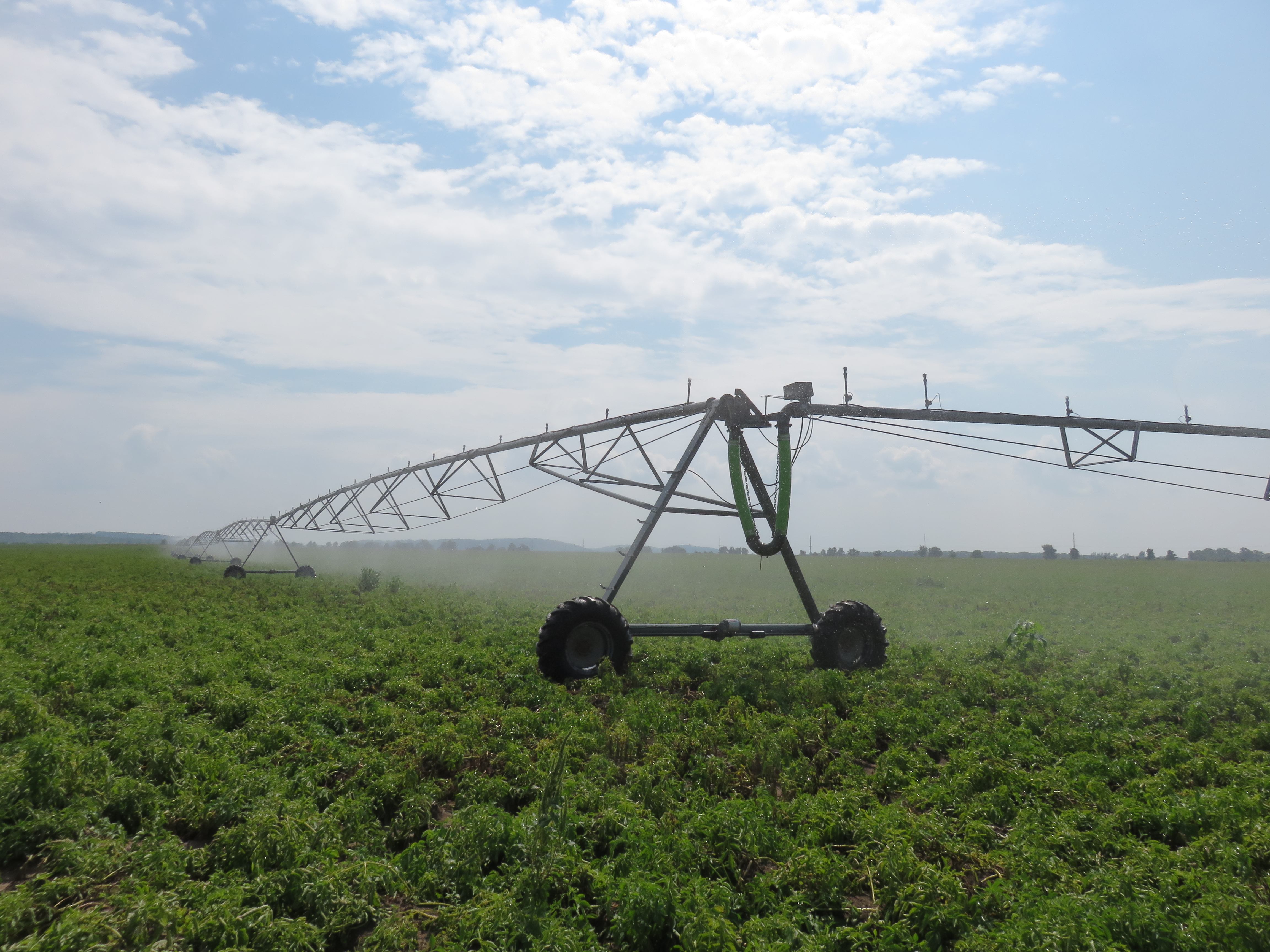Water is a critically important resource in agro-ecosystems across the United States, and water quantity and resource availability are key areas of concern. In Wisconsin, the water quantity issue was tackled by a participatory working group who worked together to develop reasonable solutions for the long-term viability of the resource. This working group created sustainable options by developing a grower-driven program focused on water stewardship ultimately called the Wisconsin Water Stewards. The goal is to expand educational programs that utilize research-based knowledge and tools to target agricultural water use and allow farmers, local stakeholders and consumers to more effectively balance water conservation with sustainable food production for their local communities.
In 2016, the Wisconsin Water Stewards began as a way to collaboratively develop community-led solutions for water quantity concerns, while concurrently looking at options to maintain water services in the region. The results allow growers and stakeholders the opportunity to deliver viable, research-based solutions to manage water resources.
The program was initiated with input from a strong working group composed of municipal leaders, environmentally oriented non-profit organizations, public agencies, academic researchers, farmers, supply chain partners and agricultural associations. This working group met regularly to discuss potential groundwater management scenarios that would maintain or enhance agricultural, ecosystem and recreational values in the region.
The working group envisioned a program with verifiable options for growers so that they could be recognized when providing water stewardship, documenting improvements and working toward research-based water stewardship and conservation goals. The resulting stakeholder process guided the enhancement of mutually acceptable solutions that balance a productive and economically sound agricultural economy with natural resource protection.
In 2018, this innovative new approach to water quantity stewardship was formally launched as the Wisconsin Water Stewards. During this past growing season, potato and vegetable growers started using the educational tools. The program allows farmers to identify where they are on the spectrum of agricultural water conservation strategies. It provides flexibility and includes options for all growers—from those who initially just want to learn more about water stewardship, to those ready to invest in production- and location-based conservation changes.
The Wisconsin Water Stewards is a tier-based program, with a two-tiered assessment. The base tier is a practice-based water management program that leads to long-term water conservation and increased water use efficiencies, and that allows growers to track improvements overtime. The second, top tier involves the use of groundwater models to develop local and regional conservation strategies customized to individual farms and proximity to sensitive water resources. The top-tier approach involves a meeting with a water use specialist where a conservation plan is developed and implemented. The plan is later revisited to ensure shared goals and subsequent implementation strategies are achievable for both economic and conservation outcomes. This includes a detailed conservation program focused on regional-, farm- and location-based alterations to implement on-farm. These emphasize restoration, ecological principles, stream protection and alternative strategies based on risk levels associated with farms.
During the 2018 growing season, we worked closely with participating growers to ensure viable program outcomes. Key outcomes include linkages of water stewardship to local, regional and national sustainability programs. Supply chain partners are looking for water stewardship solutions, as water is central to many sustainability programs. Grower-led programs such as the Wisconsin Water Stewards may help develop better market-based options and enhance adoption of water conservation programs. Growers find other benefits as well, including enhanced education, better messaging and increased public relations.
A lesson learned from the development of the Wisconsin Water Stewards is that solutions to water issues are most likely to be effective when they are developed by multi-faceted stakeholders who work on local issues with on overall unified goal. The program has helped develop a process to work toward comprehensive, informed, research-based options for water stewardship. Since water is a critical issue to more than just the vegetable industry, in the future we hope to expand the program to multiple crops and regions across Wisconsin.
For more information on the Wisconsin Water Stewards, contact Deana Knuteson with the University of Wisconsin – Madison at dknuteson@wisc.edu or (608) 347-8236.
